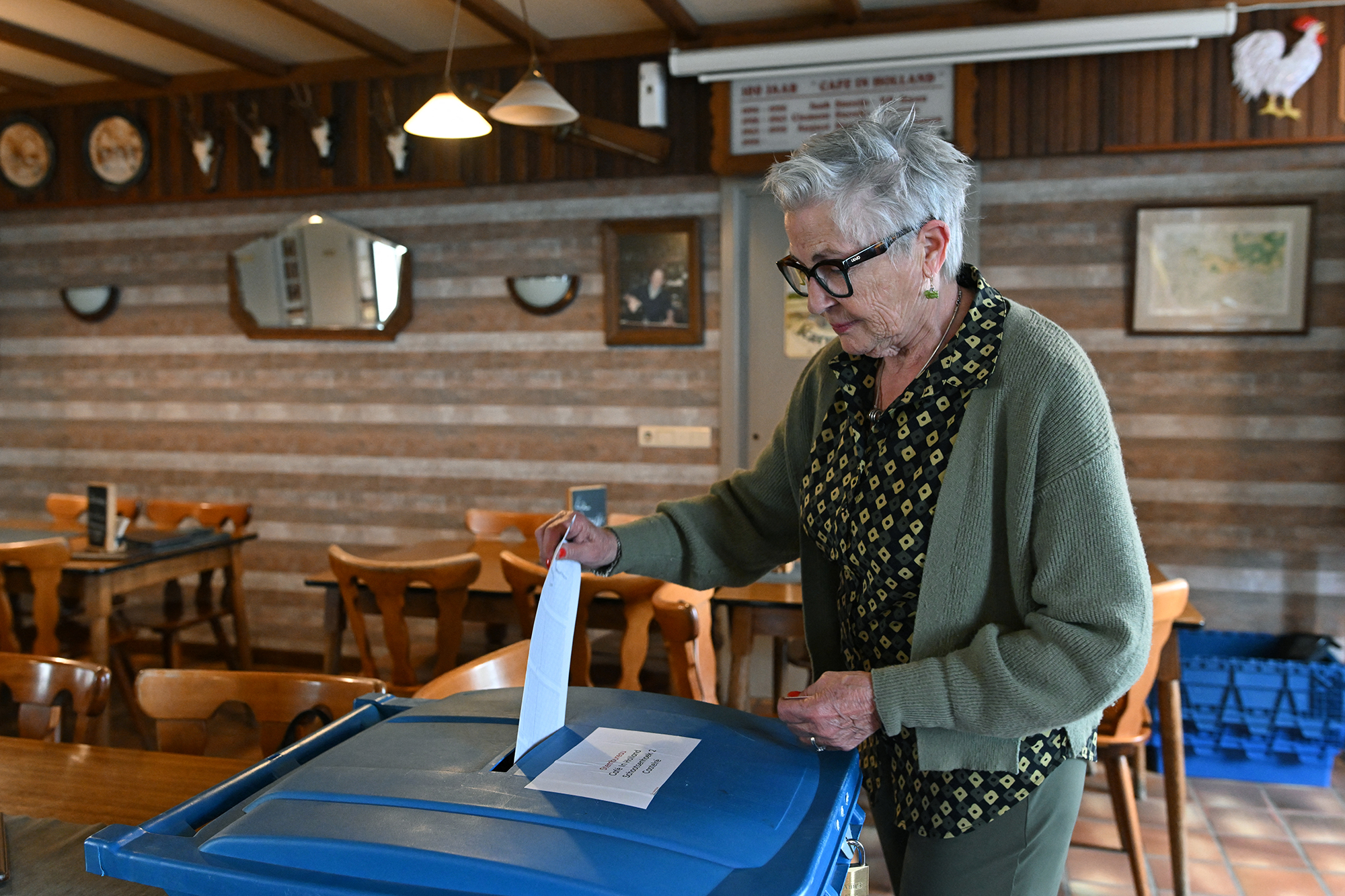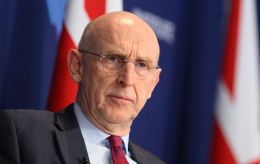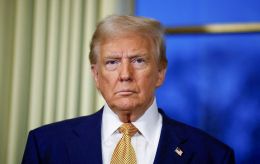Right-wing momentum grows in the Netherlands. What's at stake for Ukraine?
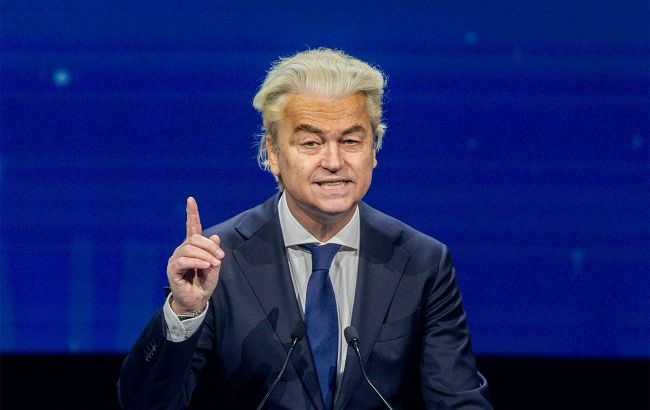 Geert Wilders, leader of the far-right Party for Freedom (photo: Getty Images)
Geert Wilders, leader of the far-right Party for Freedom (photo: Getty Images)
The Netherlands is holding snap parliamentary elections today, October 29. Will far-right frontrunner Geert Wilders emerge victorious and become the next prime minister? Read the analysis by RBC-Ukraine.
Key questions:
- Why are the Dutch voting for parliament again just two years later?
- Who's expected to win, according to polls?
- What could these elections mean for Ukraine?
Artificial intelligence is playing an ever-larger role in people’s everyday lives — even in politics. Ahead of the snap elections in the Netherlands, many voters reportedly turned to AI chatbots to help them decide which party to support.
But, as it turned out, every single one of these chatbots was biased. According to the Dutch Data Protection Authority, regardless of the question, they all favored just one candidate — Geert Wilders, leader of the far-right Party for Freedom (PVV). And it's largely because of him that the Dutch are heading to the polls again for the second time in two years.
Who broke the coalition
After PVV's stunning victory in the 2023 elections, which gave it the largest share of seats, the party spent six months negotiating to form a fragile four-party, right-leaning coalition together with the Farmer–Citizen Movement (BBB), the New Social Contract (NSC), and the liberal-conservative VVD.
Due to his controversial reputation, Wilders had to give up his ambition to become prime minister, allowing independent candidate Dick Schoof to take the post instead.
However, that government lasted only 11 months. In June this year, Wilders pulled PVV out of the coalition, effectively collapsing it. The immediate reason was his partners' refusal to back his radical immigration plan, which included deploying the army to patrol the borders and deporting all Syrian refugees.
The coalition's collapse was a calculated move by Wilders. The political gamble could deliver PVV another election win — though not necessarily real power.
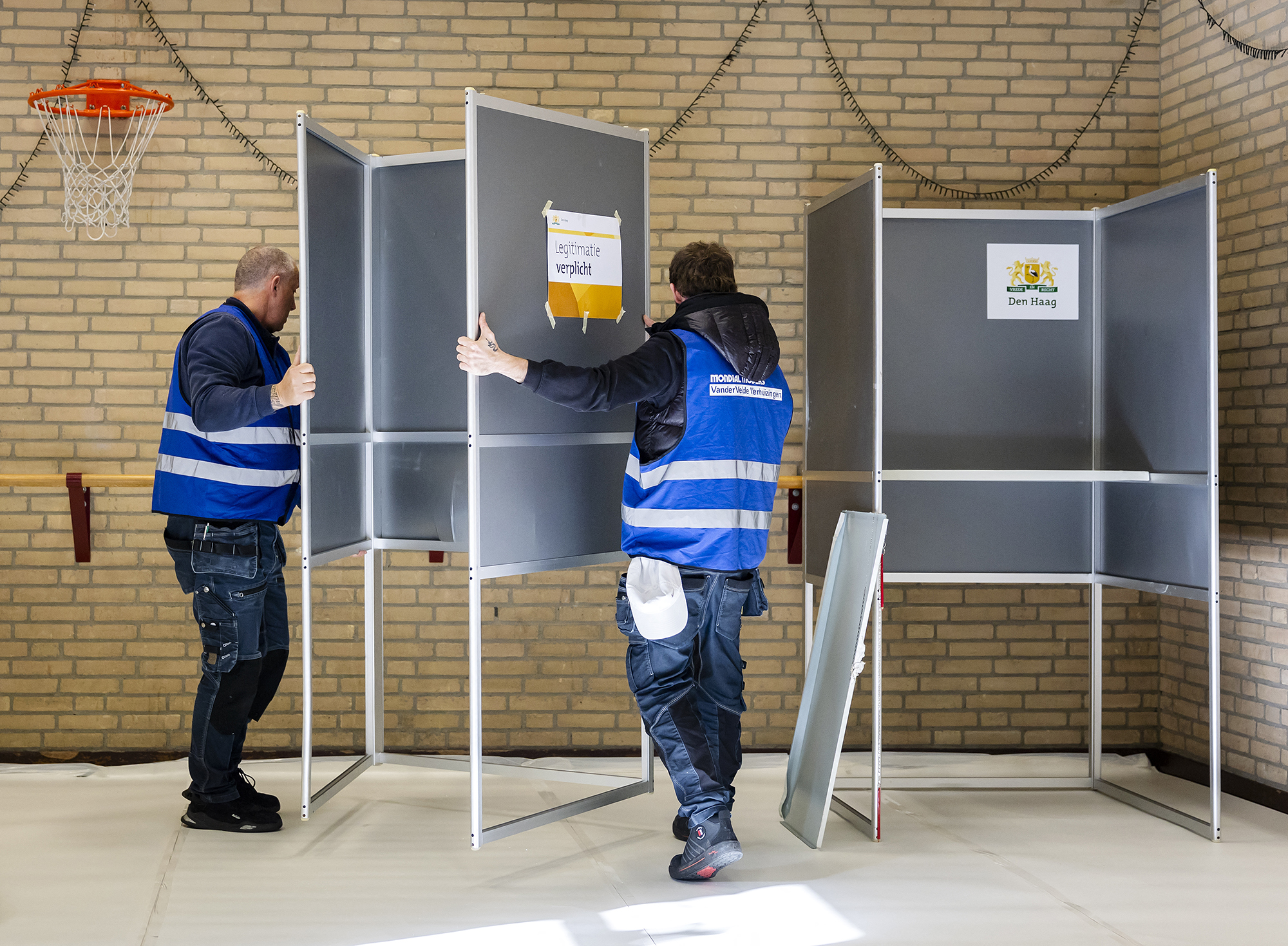 Snap parliamentary elections to be held in the Netherlands (Photo: Getty Images)
Snap parliamentary elections to be held in the Netherlands (Photo: Getty Images)
Because of the Netherlands' low electoral threshold (just 0.67% of the vote is enough to win a seat), around 15 parties are expected to enter parliament.
With the vote so fragmented, none of them is projected to win more than 20% of the vote. As a result, forming the next government will likely become another drawn-out coalition marathon, lasting for months.
The outcome of these elections will not only shape Dutch politics for the next four years but also influence the country's future partnership with Ukraine.
What Ukraine can expect
The Netherlands has a reputation for taking a tough stance on EU enlargement, particularly regarding legal procedures. This was reaffirmed last fall when Prime Minister Dick Schoof firmly rejected a proposal by European Council President António Costa to change the EU's decision-making rules.
Costa's idea aimed to bypass Hungary's veto and launch accession talks with Ukraine. But Schoof opposed it. According to Yaroslav Smovzh, head of the Europe research program at the ADASTRA think tank, Schoof's resistance stemmed from the fact that Costa's proposal would have changed the entire voting procedure in the European Council for opening negotiation clusters.
"That means it would have applied not just to Ukraine, but also to Moldova and the Western Balkans. Schoof, being a conservative politician, opposed it and instead urged direct pressure on Viktor Orbán to help Ukraine open its first negotiation cluster," Smovzh told RBC-Ukraine.
Smovzh believes there is currently no reason to expect Costa's proposal to return to the EU agenda. Hungary’s 2026 elections could spell the end of Orbán's rule — and, with it, of the so-called Hungarian veto.
Therefore, even if the previous coalition hadn't collapsed, unconditional Dutch support for Ukraine's EU integration would still have been unlikely. And now, there's the added possibility of Geert Wilders — once known for his sympathy toward the Kremlin — coming to power.
In 2018, Wilders visited Moscow and called for a partnership with Russia, angering families of the victims of flight MH17, which was shot down by Russian forces over Donbas. However, following Russia's full-scale invasion of Ukraine, and especially after his election victory, Wilders dramatically changed his rhetoric.
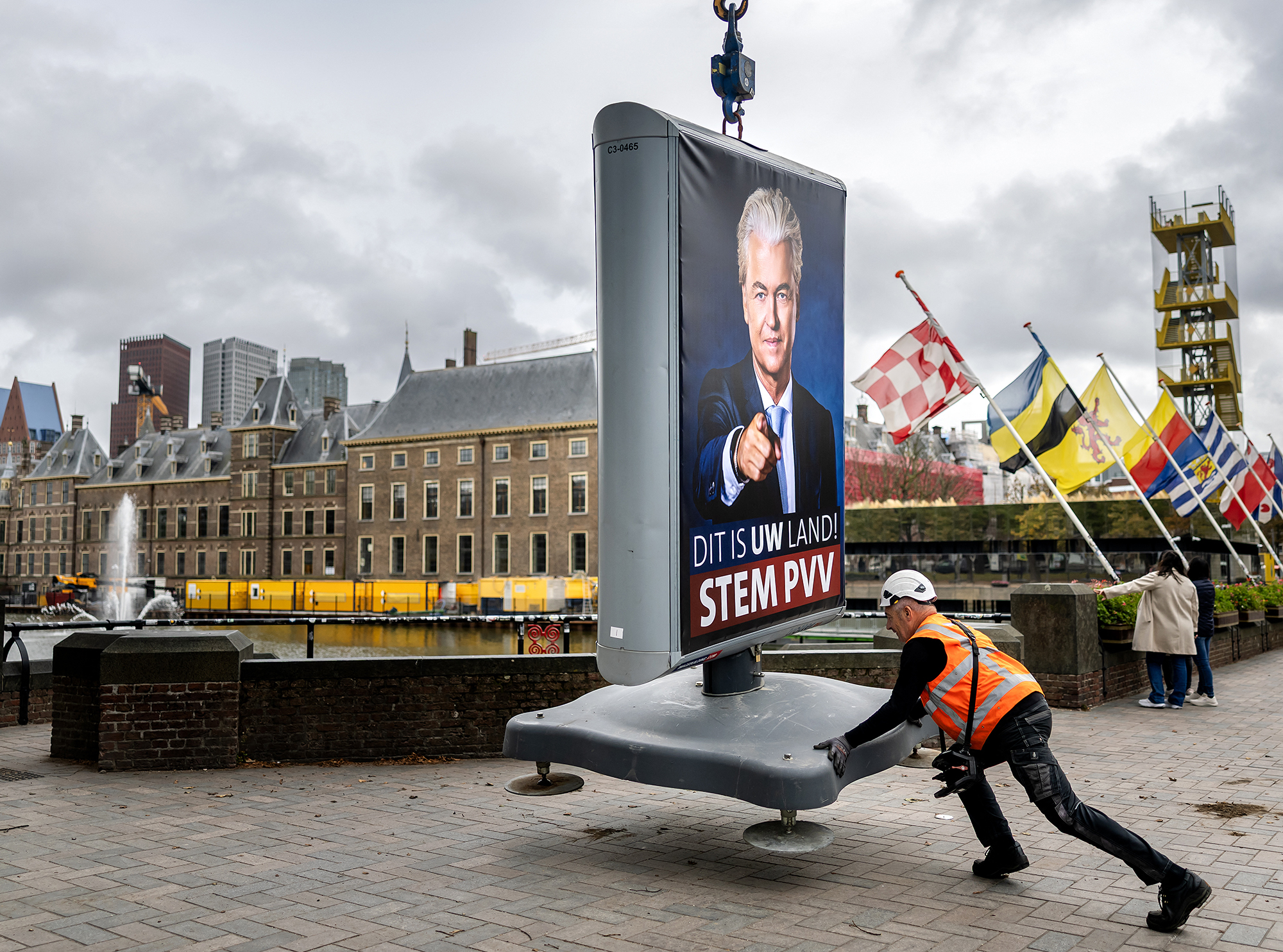 Geert Wilders – frontrunner in the polls (Photo: Getty Images)
Geert Wilders – frontrunner in the polls (Photo: Getty Images)
In May 2024, the Dutch government, led by PVV, pledged both political and financial support for Ukraine. This pragmatic pivot was necessary for Wilders to avoid political isolation, since most Dutch parties strongly back Kyiv.
According to Smovzh, unlike other leading right-wing populists in Europe, such as Viktor Orbán or Marine Le Pen, Wilders is not uniformly anti-Ukrainian. His statements have been mixed — some in support of Ukraine, others opposing financial aid. He has met with President Zelenskyy, recognized Ukraine's right to self-defense, and described Russia's aggression as barbaric and illegal.
"So, in the scenario where Wilders becomes prime minister, Ukraine would still be able to find common ground with him. Of course, it's hard to call him openly pro-Ukrainian. But as we've already seen over the past year, his participation in the coalition didn't prevent the Netherlands from supporting Ukraine," the analyst noted.
Despite leading in the polls, PVV is unlikely to win an outright majority in the new parliament. Wilders will again have to maneuver and negotiate with more moderate parties to form a coalition.
Who will make it to parliament
The Dutch parliament has 150 seats, and forming a government requires a simple majority — 76 seats. However, no single party has ever achieved this on its own, which is why the Netherlands has been governed exclusively by coalitions for over a century.
This long-standing coalition model has been reinforced by a modern political trend. As in much of Europe, support for the once-dominant center-right and center-left parties has plummeted over recent decades, from more than 80% of the vote in the 1980s to just over 40% today.
The vacuum left by these "old" parties is being quickly filled by smaller movements. The number of political forces competing has skyrocketed, with 27 parties running in this election — including some unusual ones, like 50PLUS, a Party for the Animals, and even Party for Sports.
The far-right Party for Freedom (PVV) of Geert Wilders remains the undisputed frontrunner in the polls. According to the latest forecasts, PVV is expected to win around 31 seats — slightly down from its current 37. Among the party's key campaign pledges are a total freeze on asylum applications and the return of Ukrainian male refugees to their home country.
Just behind PVV are two major contenders that could form the backbone of the next coalition:
- The center-left alliance of GreenLeft and the Labor Party (GL/PvdA), led by former EU commissioner Frans Timmermans, is projected to win 25 seats. The bloc strongly supports continued and increased aid to Ukraine and backs its European future.
- The Christian Democrats (CDA) are polling around 23 seats, marking a remarkable comeback from the five they held after the last election. Under Henri Bontenbal, CDA calls for "normal, civilized politics," which includes support for Kyiv amid Russian aggression.
27 parties vie for parliament (Photo: Getty Images)
Several other parties are also expected to enter parliament and may become kingmakers in coalition talks:
- The liberal-progressive D66, led by Rob Jetten, could expand its presence from 9 to 14 seats. The party consistently backs military and EU integration aid for Ukraine.
- The liberal-conservative VVD, the party of former prime minister Mark Rutte, is losing ground. Its current leader, Dilan Yeşilgöz, has been accused of shifting too far to the right, and VVD could lose as many as ten of its 24 seats.
- The populist, hardline conservative JA21 could win around 13 seats, drawing voters disillusioned with PVV and VVD.
- Two of PVV's former coalition partners — the Farmer–Citizen Movement (BBB) and New Social Contract (NSC) — are expected to fare poorly. In particular, NSC might fail to enter parliament altogether.
Because of this extreme political fragmentation, the question of who finishes first is less important than which coalitions are even possible. Most major parties have ruled out cooperating with Wilders, though he still hopes to lead a minority government.
The outsider frontrunner
Forming a government in the Netherlands is usually a long, drawn-out process. First, MPs appoint a formateur to explore potential alliances. Once a viable coalition is identified, the formateur — typically the leader of the largest party — begins final negotiations. This process often takes months.
According to The Guardian, the most plausible post-election scenarios now involve combinations of centrist, center-left, and moderate-right forces. Likely coalitions include a mix of CDA, GL/PvdA, and D66, possibly joined by smaller parties such as JA21.
"It looks more like the Netherlands will end up with a centrist coalition of three or four parties," ADASTRA analyst Yaroslav Smovzh told RBC-Ukraine. "That's going to be difficult: the more parties in a coalition, the harder it is to reach agreements. Another possible outcome is a minority coalition relying on situational alliances in parliament — and in the Netherlands, there are plenty of them due to the low electoral threshold."
So, despite likely winning the most seats, Wilders could still end up as a lone opposition figure. He may instead focus on building popular support in hopes that frustration with a new, unstable coalition will eventually work in his favor.
"In my view, Wilders is playing the long game, aiming not just for the prime minister's seat but ultimately for near-total control over parliament and the country," Smovzh concluded. "But this election won't be his moment of triumph. Even if polls give PVV over 30 seats, that's not enough to form a governing coalition."
***
Unlike in many European countries, Ukraine has not been a major issue in the Dutch campaign. Parties are focused on pressing domestic concerns — above all, a chronic housing shortage and migration management. Still, the outcome of these elections will inevitably shape the Netherlands' policy toward Ukraine.
Sources: The Guardian, NL Times, the Dutch Data Protection Authority, polling by EenVandaag and Verian, and commentary from Yaroslav Smovzh, head of the Europe research program at the ADASTRA think tank.
